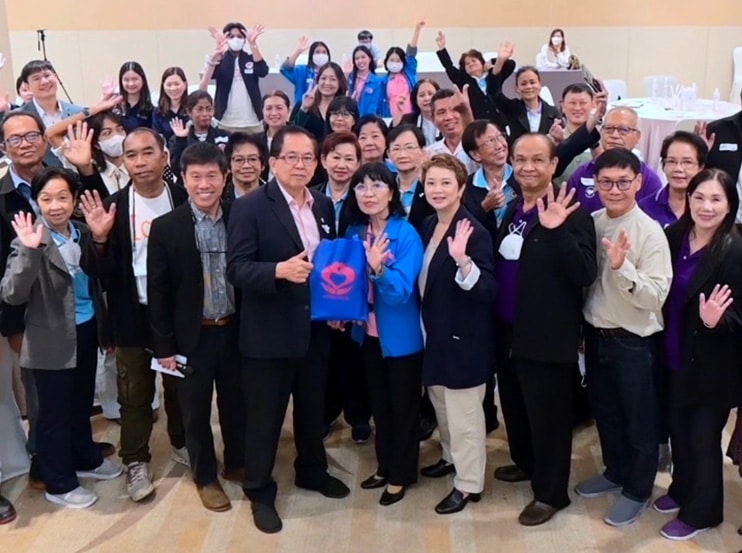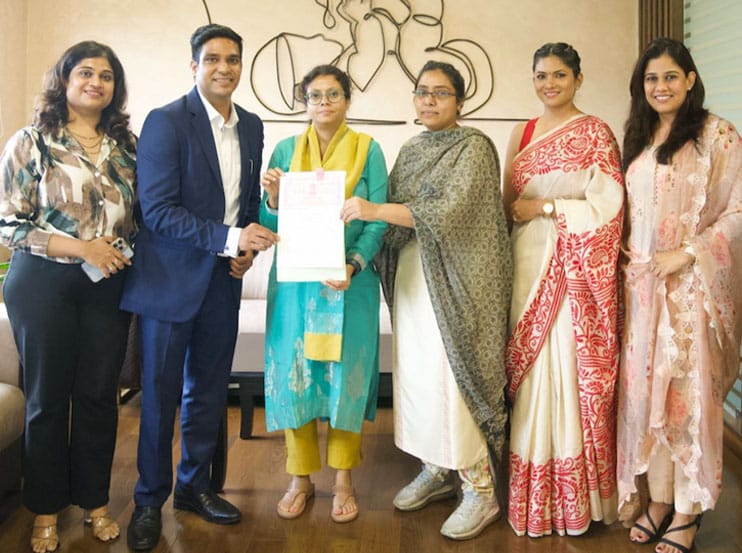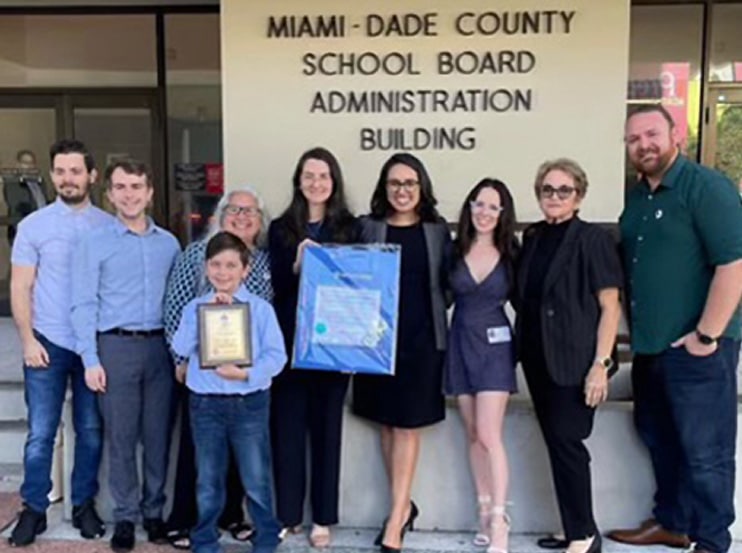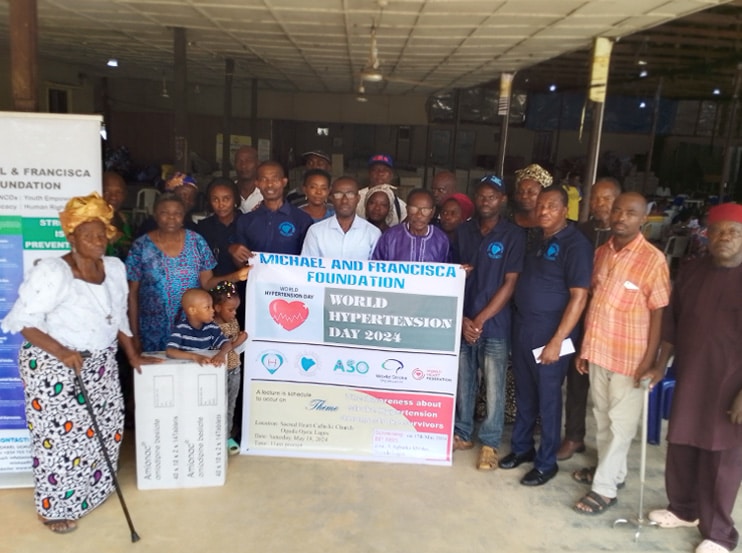
We invite you to
Heart to Heart Foundation
Thailand
Cardio-Renal-Metabolic (CRM): Patient Empowerment, Awareness Raising, Policy Projects in Thailand

Heart to Heart Foundation
Thailand
Introduction
Cardio-Renal-Metabolic-Comorbidity Situation in Thailand
Diabetes: In 2021, 6.9% of the adult population in the Association of Southeast Asian Nations (ASEAN) region died from diabetes before the age of 60 years. More than 25 in every 100,000 people in the Thai population die from diabetes, a figure close to the number of deaths reported from traffic accidents. Diabetes is one of the top 3 reasons for hospitalization in Thailand. The rate of hospital admissions from type 2 diabetes and its complications is continually increasing. Each year more than 1 million Thai people are admitted to hospital for type 2 diabetes.
Heart Disease: Diabetic patients with heart disease have a 2.57 times higher chance of death than heart disease patients in general.
Renal Disease: Diabetes increases the risk of death from kidney failure by 3.32 times. Chronic kidney disease is a complication of diabetes associated with a higher rate of prevalence in the hospital. More than 40% of people with diabetes will develop diabetic kidney disease within 10 years.
Hence the importance of increasing the awareness and understanding of these related diseases and providing education to the patients and public is the priority to develop both policy and implementation practices in Thailand.
Objectives
- To find at least 1-2 patient educator experts in each disease area to provide knowledge about their own disease and comorbidities, health promotion and prevention, in an effective way and being able to practice by themselves.
- To support CRM Patient empowerment, peer support and collaboration including networking among CRM Patients.
- Build a CRM Patient Educator Network in order to provide education to CRM patients and the public as a whole.
- To create results that lead to behavior change, to reduce the severity of the disease and the risk of complications, and to promote better and sustainable quality of life.
Implementation
Cardio-Renal-Metabolic, CRM Patient Empowerment, Awareness Raising, Policy Projects
Project is to develop patient educators with effective communication and to form networks and channels to exchange information, communication and education about their diseases. Patient Educators:
Advise and encourage behavior change to the people & patients, to highlight that it is everyone’s duty and should be a daily routine of their life.
- Encourage effective communication between doctor and patient and between patient and patient in 3 types of diseases.
- Showcase patient to patient support, providing proper patient knowledge for each disease.
- Disseminate knowledge and importance of digital media as a tool.
- Hold Group Discussions among 4 Groups of 4 Diseases (CRM-Comorbidity)
Outcomes & Impact
- The understanding and awareness of diabetes, heart and kidney disease as comorbidities has increased among the CRM patients.
- The content on comorbidities and connected conditions deliver and communicate important information and need to continue development.
- Patient Educators are encouraged to communicate this content to the appropriate target groups via the most efficient channels.
- Created CRM patient network for effective comorbidity awareness and communication among the patients and wider general public, to ensure a better quality of life.
Heart Health India Foundation
India
Building Heart-Patient Communities:
A Collaborative Model with Health Authorities in India

Heart Health India Foundation, India
Building Heart-Patient Communities: A Collaborative Model with Health Authorities in India
Introduction
Since its launch in July 2024, Heart Health India Foundation (HHIF), in partnership with the National Health Mission (NHM), has been actively implementing a pioneering patient-led heart health initiative across 52 districts of Madhya Pradesh. Covering nearly 50,000 patients, the project focuses on enhancing patient-centric care by forming peer support groups, promoting heart disease prevention, and improving management through education and shared experiences.
This initiative is the first of its kind in India, led by a patient organization, and is designed to engage patients, caregivers, and healthcare providers in a collaborative model. The program is gaining momentum as communities embrace the value of lived experiences and peer-driven care, making significant progress in raising heart health awareness at the grassroots level.
Objectives
To improve heart health outcomes by fostering peer support groups and enhancing awareness, prevention, and patient-centric care for nearly 50,000 individuals across 52 districts in Madhya Pradesh.
Implementation
The project’s pilot phase in Bhopal district, a strategic location covering the state capital, is progressing well. Discussions with hospitals, clinics, doctors, and staff are ongoing to ensure seamless integration of patient-centric care. Educational materials are being developed and disseminated to onboard patients, while medical professionals are undergoing specialized training. Patients are being engaged through both physical and digital channels, such as in-person sessions, telephone calls, and WhatsApp, ensuring broad outreach and effective communication across diverse populations.
Outcomes & Impact
The pilot in Bhopal district is creating strong systems for patient engagement and healthcare delivery. Educational materials are being carefully reviewed for maximum efficacy in consultation with health officials, ensuring the content is impactful and relevant. Training programs for medical staff are in development, designed to enhance their ability to deliver patient-centric care. The established communication channels, such as telephone and WhatsApp, are actively connecting patients, setting a solid foundation for scaling the project across the state.
HeartCharged
US
Finding the Undiagnosed Youth:
Local Impact;
Global Influence

HeartCharged, US
Finding the Undiagnosed Youth: Local Impact; Global Influence
Introduction
Since the first weeks after we were shocked with our unexpected diagnosis of hypertrophic cardiomyopathy as teenagers, we have been raising our voices to convince people to have youth screened. Our screening led to treatments which saved our lives. Hearing stories of youth after youth who instead died a preventable death was not something we have ever been able to endure in silence. This HeartCharged initiative is one way we magnified our voices and compelled action in our community.
1 in 300 youths have an undiagnosed heart condition. The goal of this initiative is to get those youths the diagnosis they need, which should lead to treatment and consequently reduce the number of preventable cardiac deaths in young people. To accomplish this, we first need them to be screened.
Due to near universal ignorance of cardiac conditions in the young, we needed those screenings to be highly-accessible. As parental permission is required to conduct them, our plan had to include an awareness component. This would drive action and insure on-going support.
The true goal of this project was beyond the community in which it commenced, broader awareness was also needed to foster acceptance and duplications in other locales. Therefore, the screenings, in-person events, and community advertising occurred within Miami-Dade County, Florida, USA reaching tens of thousands. However, the social media awareness component reached an audience of millions globally.
Objectives
- Life-saving heart screenings for youths to help eradicate preventable cardiac deaths.
- Create within our local community a replicable model of action wherein all schools offer free heart screenings on a 2-3 year rotational basis and parents elect to have said screenings performed on their children.
- Create awareness on a local level to implement, support, and sustain, as well as on an international level to replicate, said model.
Implementation
- Conceptualized the idea of free, in-school, on-going EKG heart screenings within the Miami-Dade County Public School System in Florida, USA.
- Sought support for plan, pitching prospective sponsors while encountering misinformation and disinterest.
- Found School Board Member to sponsor.
- Provided necessary data, resources, wording, and guidance. Advocated with entire Board, gave testimonies and provided witnesses. Initiative was passed, but continued vigilance has been required.
- Stopped efforts to dismiss, dilute, and discontinue initiative while ensuring access was not only for a select group of students.
- Continually working on more action-driving awareness towards original vision of universal availability of screenings to each student every few years and parents electing to have students participate.
- Delivered in-school presentations, plus additional to youth groups, which encouraged heart screenings and shared warning signs. Also spoke to parent groups.
- Created and utilized transit ads, with placement near schools, to inform viewers on the need for heart screenings and warning signs of a cardiac condition in youth.
- Created a social media campaign discussing cardiac conditions in youth and warning signs, driving the audience towards screenings and needed treatments.
Outcomes & Impact
- 24,424 students have been impacted in the two years since implementation began.
- 11,562 free, EKG screenings were performed in-school.
- 12,862 screenings were offered in conjunction with free school athletic physicals.
- Screenings have been offered in all schools with students grades 6-12 (age 11-17).
- 85+ abnormalities were detected and several life-saving procedures performed just in the first six months.
- 226+ students have been referred for further testing.
- 30 in-school and community presentations allowed us to speak directly to about 10,000 students.
- 2M+ impressions came from transit advertising visible in three distinct locations over one school year.
- 6M+ views and a high interaction rate have been organically generated so far from the ongoing social media campaign.
Instituto Lado a Lado
Pela Vida
Brazil
10 years of Follow Your Heart
Campaign

Instituto Lado a Lado
Pela Vida, Brazil
10 years of Follow Your Heart Campaign
Introduction
Cardiovascular diseases are the most common among Brazilians, and the leading cause of death in Brazil and worldwide. Therefore, the Follow Your Heart campaign was created by the Side by Side for Life Institute in 2014 to alert the population about heart diseases, prevention, risk factors, early diagnosis, heredity, continuous care and adherence to treatment.
The Follow Your Heart campaign is linked to Red September, a month of awareness about cardiovascular diseases – the work takes place throughout the year, but in September the actions intensify.
We have completed 10 years of dedication to inform Brazilian population about the CVD risks and also working with legislators and health managers to positively influence public policies, so that Brazil will be able to write and to approve a National Health Plan for CVD, focusing on equitable access to health care from prevention, early diagnosis; the control of cardiovascular diseases and offering rehabilitation for people with lived experience.
Our main objective is to work as a changing agent in the country, contributing for a dignified and equal access to healthcare services, highlighting the importance of achieving sustainable healthcare systems, public and private. Together, side by side, we can build a healthier future for every Brazilian heart.
Objectives
The Follow Your Heart campaign has two main strands:
(1) Awareness: Have a high social impact of Awareness, engagement and habit changes.
- Engage the population about rights information
(2) Advocacy Actions: with the objective of:
- Promote equal access to heart health for the Brazilian population.
- Articulate and sensitize parliament to the need to create a Special Commission on Cardiovascular Diseases. The goal with the creation of this Special Committee is to give more visibility and agility to the issue of cardiovascular diseases in parliament and, consequently, in public health policies.
- Influence the construction of the New Policy for the Control and Combating of Cardiovascular Diseases with the integration of the actors directly involved. In addition, information, request for public hearings and meetings for debate with parliamentarians.
Implementation
To achieve the above objectives, we use several methods:
– WEBSITE: detailed information about diseases, treatments, rights and news.
– MATERIALS TO DOWNLOAD: Information materials on various diseases, exams, habit changes and risk factors.
– SOCIAL MEDIA (INSTAGRAM – FACEBOOK – YOUTUBE – LINKEDIN) – LIVES: We adopted an accessible and popular format with the aim of reaching the entire population and democratizing knowledge about the cause. We prioritize the speed of social media content, with an easily absorbed narrative and simplified image elements to educate and raise public awareness, in addition to reinforcing the need to seek a doctor at the sign of something incongruent in health.
– ACTIONS: Use of various methods to disclose information in person:
- Street actions with physical exercises and distribution of information material
- Doctors going to street markets to share good food choices
- Actions in schools, to inform children and their families (habit changes start in childhood)
- Round table Conversation with doctors and patients
- Red lighting of Christ the Redeemer and other sights across the country to put heart care in the spotlight in the country.
– PROJECTS:
- 3 editions of art exhibition in sculptures of hearts (raising awareness through art). A playful and innovative project, it drew the population’s attention to the importance of heart care through heart-shaped sculptures signed by renowned plastic artists. The sculptures were distributed throughout the city of São Paulo.
- Document Guide to heart valve disease (information support for reference centers)
- Patient´s Charter with HF (information support patients and reference centers)
– ADVOCACY ACTIONS: events to defend the interests of access to heart health of the Brazilian population in an equal manner.
- Forums in Brasilia
- Global health frontiers forum
- Cholesterol Multistakeholder Meeting
Outcomes & Impact
– VIDEOS:
- YouTube Channel with 1.2 million general views, with 452,000 views only in cardiovascular-themed videos, totaling 11,000 hours of heart-themed videos watched.
Data extracted directly from YouTube in the period from August 2010 – September 2024
– SOCIAL MEDIA
- Instagram: 3.7 million people reached
- Facebook: 6.1 million people reached
Data extracted directly from the meta in the period from August 2021 – September 29, 2024, adding the institutional and campaign media.
– WEBSITE:
- 1.4 million views
- 1.8 million views of content about heart health
Data extracted directly from Google analytics from September 2017 – September 2024
– EVENTS: 6 in-person events
Michael and Francesca Foundation
Nigeria
What You Do Not Know About Hypertension

Michael and Francesca Foundation, Nigeria
Introduction
According to the latest WHO data published in 2020, Hypertension Deaths in Nigeria reached 10,692 or 0.72% of total deaths. The age adjusted Death Rate is 16.07 per 100,000 of the population, which ranks Nigeria #103 in the world.
These alarming statistics motivated us to take action and initiate our efforts to address this critical health issue. The study estimates that there were more than 28 million cases of hypertension in Nigeria in 2020, rising from four million in 1995. They disclosed that half of the over 35 per cent of the adult population in Nigeria with hypertension are not on treatment.
On the 17th – 18th of May 2024, Michael and Francisca Foundation organized a two-day event “What you don’t know about Hypertension” aimed at raising awareness about hypertension, knowing your numbers by promoting healthy lifestyle choices, and encouraging regular health check-ups to prevent and manage high blood pressure with Stroke Survivors and other attendees. This event was conducted across different communities, providing individuals with valuable information on aspects of hypertension. The event featured insightful lectures by renowned experts in hypertension, focusing on early detection, lifestyle changes, and treatment options for hypertension, empowering attendees to take control of their health.
Objectives
To raise awareness about the deadly evil that comes with Hypertension
- To encourage regular health check-ups to prevent and manage high blood pressure
- To provide free Blood Pressure Screening, allowing individuals to know their numbers and understand their risk levels
- To conduct sessions on healthy lifestyle choices, emphasizing the importance of a balanced diet, regular physical activity, and stress management
- To discuss the critical role of regular medical check-ups in early detection and management of hypertension, encouraging participants to prioritize their health.
We conducted screenings for people of all ages, from the young to the elderly. In total, 78 individuals, ranging from 16 to 102 years old, participated in the screenings. We also received a generous donation of medicine from Cardinal Drugs Ltd, which was distributed among the participants.
Implementation
We were able to educate the participants on the risks of hypertension with Dr. Ifeanyi Okonkwo, a respected expert in cardiovascular health, who provided a thorough explanation of what hypertension is and can cause, the factors that contribute to its development, and how it can be effectively managed and prevented. He discussed how hypertension can be essentially controlled through lifestyle modification (Weight Reduction and Maintenance of Body Weight; Reduced Intake of Sodium; Medication Adherence; and Reduced Alcohol Consumption and Avoidance of Smoking) and drug therapy.
The Dietician took the stage and informed us that we should be careful with what we eat and drink, and reduce the intake of sodium. She said diet planning is essential as it focuses on informing proper eating habits for individuals with cardiovascular diseases. The event also included:
- Training Exercise: This session demonstrated easy and effective physical activities to incorporate into daily routines to maintain healthy blood pressure levels.
- Educational Videos: The participants were educated and watched video clips about emergency number 112 and a segment titled “My Stroke Story,” which provided personal insights and raised awareness about stroke prevention.
Outcomes and Impact
During the screenings of 78 individuals, excluding stroke survivors:
- 17 people had a Normal pressure of 120/80 mmHg/
- 36 people were Hypertensive 130 to 139 mmHg/80 to 89 mmHg
- 22 people had a blood pressure of 140/90 or higher
- 3 persons where 180/120 blood pressure which they were rushed down to the hospital
Free Medication provided to those who found out that they were Hypertensive.
Two elderly men, four women, and one young boy were found to be suffering from obesity during the screenings. They received treatment and were advised to regularly visit the hospital for ongoing care. Additionally, 41 out of the 78 participants had never visited a hospital or taken any medication prior to the screening. After the event, their names were recorded, and they have since started attending hospital appointments for proper medical follow-up.
We distributed surveys to the participants and collected them for follow-up. This will help track their progress and ensure they receive ongoing support and medical attention as needed
We will carry out a midterm evaluation after 6 months to assess progress towards outcomes and identify any implementation bottlenecks.
Innovation
This work has been published in the June edition of the World Hypertension League Newsletter featuring our exceptional reports on World Hypertension Day. It was also published in World Stroke Organization and this is the link.
In Nigeria, nearly half of adults with hypertension are unaware of their condition, and without proper care, it can lead to cardiovascular disease. Recognizing this, our project focuses on bridging the gap between lack of awareness and timely intervention.
Cast Your Vote!
Cast Your Vote!

